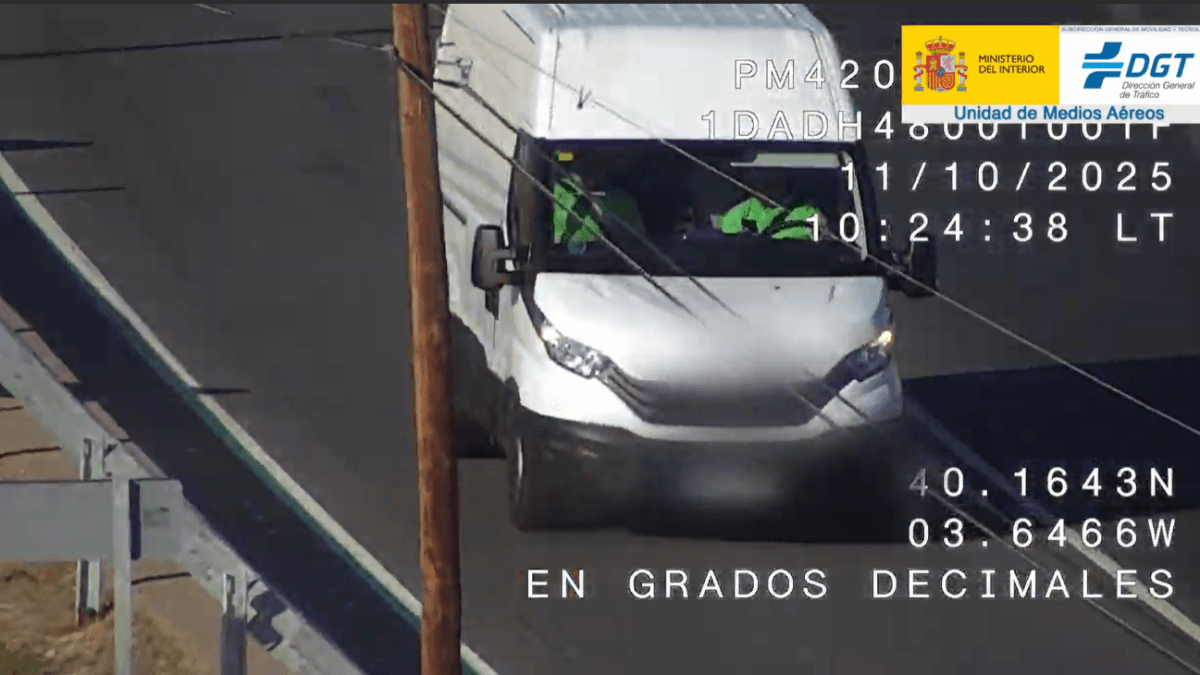The DGT's unresolved problem: neither the tougher penalties nor the awareness messages are effective in curbing mobile phone distractions while driving.

The General Directorate of Traffic (DGT) has announced the results of the surveillance campaign it carried out between October 6 and 12 to monitor distracted driving, one of the most common causes of road accidents. During that week, in collaboration with local police, officers from the Civil Guard's traffic unit monitored a total of 404,258 vehicles and reported 7,983 drivers, some of whom received more than one fine, with a total of 8,088 traffic violations.
One particularly noteworthy fact demonstrates—once again—that the public is unaware of the risks of using a mobile device while driving : 40.6% of violations were for this reason, a behavior currently punishable by 200 euros and the loss of six points, the same number of points that are taken away from those who, for example, drive recklessly. Before the amendment to the Traffic and Road Safety Law in 2022 , four points were deducted; however, it was decided to toughen the deductions in order to discourage drivers from using their mobile phones while driving.

Despite this, the DGT has not managed to reduce these violations. Just look at the data from the distraction control campaign carried out by the Traffic Department six months after the amendment to the aforementioned regulations came into effect. At that time, 33.6% of the tickets filed were for using a device while holding it in the hand. In 2024, the percentage reached 42.7% , a figure that was higher than the previous year.
These figures demonstrate that neither the tougher penalties nor the awareness campaigns carried out by the DGT are having any effect. Nor are the messages it publishes on its social media. The agency, headed by Pere Navarro, has explained this very clearly on numerous occasions: when driving at 120 km/h, writing a WhatsApp message for 20 seconds means the car moves 600 meters 'blindly,' or if we spend 14 seconds searching for a phone number in the address book, the distance traveled without looking is 466 meters. And this negligence greatly increases the risk of having an accident.
Despite its danger, according to the Emotional Driving 2024 Study , up to 62.8% of Spaniards use their cell phones while driving; 40% do so rarely, but 17.2% repeat this action several times while behind the wheel, 4.7% pick it up often, and 0.9% are unable to put it down and focus on the road.

In addition to using a cell phone, other distractions also compromise road safety. Those detected during the week of controls were buckling a seatbelt while driving (427 drivers), using headphones or earphones connected to sound systems (351), reading while driving (239), searching for objects (135), being distracted by other occupants (87), and eating while driving (63). In addition, 1,803 complaints were for other behaviors that also involved distraction.
In some cases, these violations were combined with other violations of a different nature. Thus, officers detected 825 drivers who, in addition to being distracted, were driving with alcohol levels higher than the legal limit, and 786 who tested positive for drugs. The combination of substances and distraction increases the risk of accidents, a reality that the DGT classifies as "lethal."
To reinforce this message and appeal to each driver's personal responsibility, the Traffic Department has launched a new awareness campaign under the slogan "In a traffic accident, you can die or lose your life." This campaign, which will run until December 14, seeks to move people and inspire reflection on the human and emotional consequences of an accident.
The main spot shows a driver who, after checking a text message on his cell phone, causes an accident that kills a mother and her daughter. The ad doesn't focus on the physical impact, but rather on the psychological and moral consequences suffered by the protagonist: insomnia, anxiety, medication, and a criminal conviction. "When you survive a fatal accident that you caused, you're actually dead in life," emphasizes the ad's voiceover. The message is very clear and powerful. We just have to hope it resonates effectively with drivers.
lavanguardia





